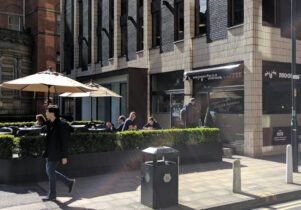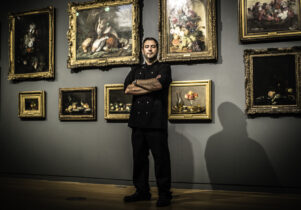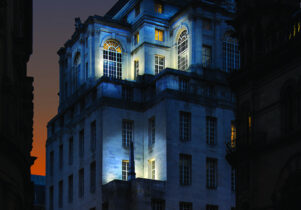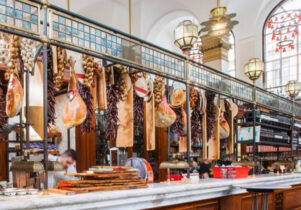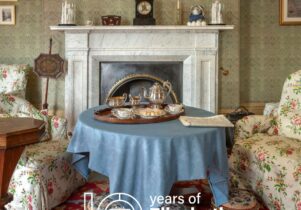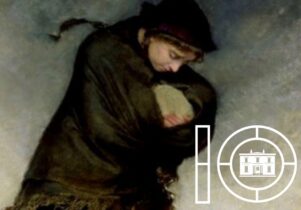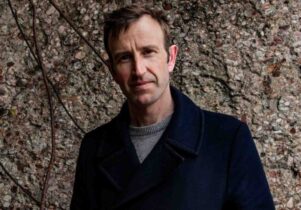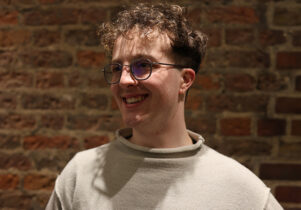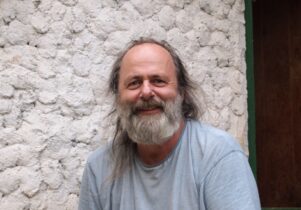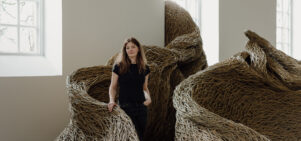Rewriting The North at The Portico Library
Sarah-Clare Conlon, Literature Editor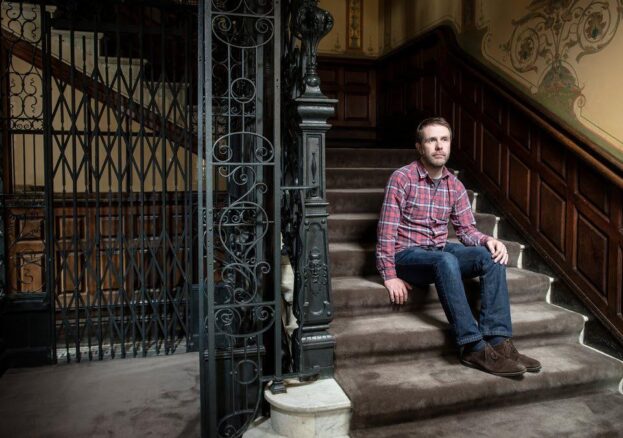
At the end of May, the poets Jean Sprackland and Jacob Polley, both known for their writing about place, launched the new Rewriting The North series of events celebrating writers and writing connected with the North of England. A collaboration between the Centre for Place Writing at Manchester Metropolitan University and The Portico Library, where the events are held, Rewriting The North sees leading writers paired up to read from their work and discuss the role that place plays in their creative practice, exploring the relationship between writing and place across a range of forms and genres and celebrating how such writers are ‘rewriters’, reimagining the North of England.
In the first event, Jean – winner of the ‘Booker of the North’, the Portico Prize in 2012 (which has just been relaunched for 2019), for her Ainsdale Sands-inspired collection Strands – and Carlisle-born TS Eliot Prize-winner Jacob explored the role that place and memory play in their evocations of the landscapes – both real and imagined – of the North of England. In the second event, taking place on 27 June, the second event sees Rosie Garland and Livi Michael on the theme ‘Manchester, Fiction & Rewriting the Past’; in July, it’s the turn of prose writers Fiona Mozley and Andrew Michael Hurley with ‘Folklore, Myth & Rural Communities’.
Rewriting The North sees leading writers paired up to read from their work and discuss the role that place plays in their creative practice, exploring the relationship between writing and place across a range of forms and genres.
Fiona Mozley is an English novelist and medievalist, who hails from York and currently lives in Edinburgh. Her debut novel, Elmet, is a study of family as well as a meditation on the landscape of South Yorkshire. It was shortlisted for the Royal Society of Literature Ondaatje Prize and the 2017 Man Booker Prize (which was won by Lincoln In The Bardo by George Saunders), and won the Somerset Maugham Prize and was awarded the eighth Polari First Book Prize in 2018 (the longlist has just been announced for the latest, with Manchester Metropolitan University’s Andrew McMillan included with his poetry collection playtime).
Another lecturer at Man Met’s Manchester Writing School is proponent of the Northern Gothic style, Andrew Michael Hurley. Having grown up near Preston, much of his writing is inspired by the Lancashire uplands and coastline, not least his debut novel The Loney, which features the quicksands and dangerous tides of Morecambe Bay. Called a ‘modern classic’ by the Sunday Telegraph and described as a ‘masterful excursion into terror’ by The Sunday Times, The Loney won the 2015 Costa First Novel Award and The British Book Awards Book Of The Year 2016, and found praise from Stephen King, who called it ‘an amazing piece of fiction’. His follow-up, Devil’s Day, heads to the Lancashire hills and the wild and lonely Forest of Bowland for more dark tales and was joint winner of the 2017 Encore Award of £10,000, which is given by The Royal Society of Literature to mark outstanding second novels. He told Man Met’s HAUNT: ‘It felt like a place that hadn’t particularly featured in fiction before.’ His third novel Starve Acre is due to be published this Halloween.
He says: ‘My interest in Northern landscapes is partly a personal one but there are other reasons too. In Lancashire particularly, towns and villages sit very close to hills and moorland – I’m thinking of that line of old cotton towns: Preston, Blackburn, Burnley, Colne – and it’s the paradox of those landscapes being at once familiar and remote which is attractive.’




